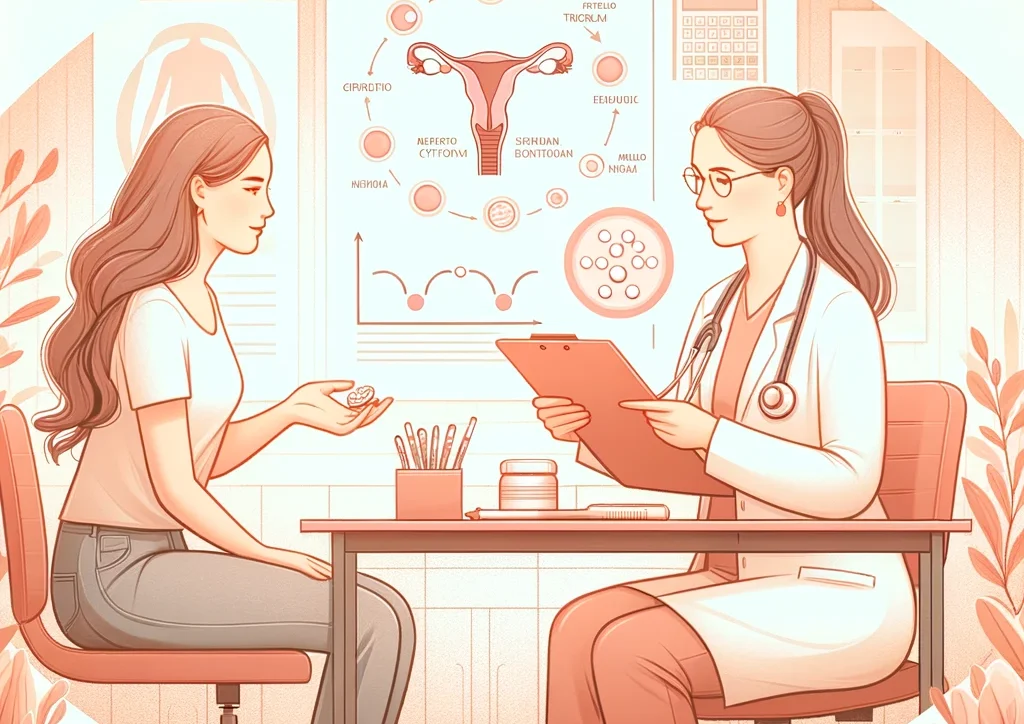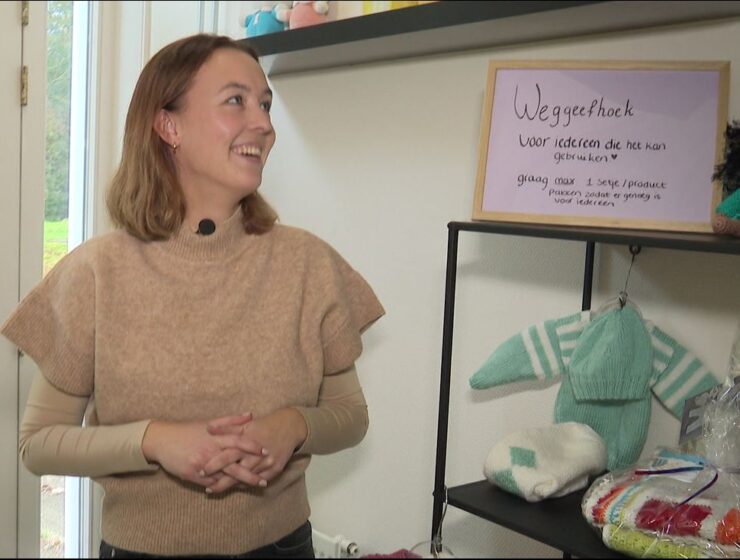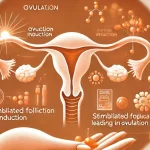Welcome to Midwives Lelystad! Whether you've stopped taking the pill for years or are just thinking about throwing away your last strip, the process of becoming pregnant can be an exciting and sometimes confusing adventure. “Stopping the Pill: What to Expect When Getting Pregnant” is our guide to help you navigate through this unique phase of your life. In this article we share practical tips, reassure you about what is normal, and give you a realistic picture of what you can expect when you stop taking the pill and try to get pregnant. From hormonal changes to fertility questions, we are here to support you and answer all your questions. So grab a cup of tea and let's start this journey together!
When to stop taking the pill?

There are several reasons why you might consider to stop taking the pill. Some women want to give their bodies a break from hormones, while others may hope to become pregnant. But how do you actually know when it's the right time to put the pill aside? Several factors play a role:
- Health: Has your doctor advised you?
- Lifestyle: Are you ready for a family?
- Menstruation: Do you want your natural cycle back?
Note that some women get their cycle back within a few weeks, while for others it may take several months. It is important to be patient. In the meantime, you can support your body with good nutrition and sufficient rest. It's a good idea to also keep track of your cycle. Look at how you feel, if there are any changes in your period and write everything down. This can help you recognize a pattern and be better prepared for what's to come.
| Type of symptom | Possible duration |
|---|---|
| Irregular menstruation | 1-3 months |
| Changes in moods | 2-4 weeks |
| Reduction of acne | 6-12 months |
How quickly do you get pregnant after stopping the pill?
Many women wonder how quickly they can get pregnant after stopping the pill. Every woman is different and it may take a few weeks to several months for your normal menstrual cycle to return. For some, the cycle recovers almost immediately, while others may have to wait a little longer. Fortunately, there is no need to worry if it takes a while to conceive. Your body needs time to naturally find its hormonal balance again.
It may be helpful to have one healthy diet to follow, exercise sufficiently and avoid stress as much as possible. Here are some tips that may help you:
-
- Vitamin intake: Ensure a good balance of vitamins, including: folic acid.
-
- Regular checks: Visit your midwife regularly to discuss your progress.
-
- Avoid harmful substances: Stay away from alcohol and nicotine.
As for timing, we think it can be useful to keep track of your reproductive cycle. Below you will find an overview of average wait times:
| Waiting time | Percentage of women |
|---|---|
| Less than 3 months | 40% |
| 3-6 months | 30% |
| More than 6 months | 30% |
Symptoms of stopping the pill

When you stop taking the pill, your body can react in different ways. One of the most common symptoms is irregular menstruation. It may take several months before your cycle is stable again. This is completely normal and you should not worry. In addition to your period, hormonal fluctuations can also occur, which can lead to: stomach ache, headache and voice changes. These symptoms are usually temporary and often disappear on their own after a few months.
Other common effects include changes in your skin and hair. For example, you may notice that your hair is getting thinner or that you are getting more pimples. But there are also positive symptoms such as increased libido and more energy. It is important to monitor these changes closely and seek professional help if necessary. Some women may also experience this nausea or fatigue. Finally, note that for some women it may take several months for natural fertility to fully recover. Here's a quick overview:
-
- Irregular menstruation
-
- Hormonal fluctuations: Abdominal pain, headache, voice changes
-
- Skin and hair changes: Thinning hair, more pimples
-
- Positive effects: Increased libido, more energy
-
- Other symptoms: Nausea, fatigue
Headache

is a common symptom when stopping the pill. This can range from mild irritation to quite intense pain. When your body adapts to the natural hormone cycle, these main complaints performance. This is often a result of hormonal fluctuations that occur when you stop taking artificial hormones. Fortunately, there are ways to relieve the pain:
-
- Maintain a regular sleep schedule, even on weekends.
-
- Ensure sufficient hydration by drinking at least two liters of water per day.
-
- Limit your intake caffeine and alcohol.
-
- Consider relaxation methods such as yoga or meditation.
In addition, changes in your diet can also play a role in managing these discomforts. Eat foods rich in magnesium, such as nuts, seeds and dark leafy greens. Moreover, it can be useful to know that this is a temporary phase. At Midwives Lelystad we understand that this adjustment period can be difficult, but remember that you are not alone. Here's a little one summary table with symptoms and how long they usually last:
Stomach ache

When you stop taking the pill, you can experience it. This is because your body adapts to the new hormonal situation. Your menstrual cycle needs to get going again and this may be accompanied by cramps and bloating. Cramps can be worse than normal, especially during your first period after stopping the pill. As your hormones recover, these symptoms can range from mild to quite intense.
In addition, it is important to know that this is often accompanied by other symptoms, such as:
-
- Mood swings
-
- Fatigue
-
- Bloated feeling
At Midwives Lelystad we understand that this transition period can be difficult. However, it is also a sign that your body is preparing for a possible pregnancy. We recommend using a hot water bottle or taking a warm bath to relieve the pain. This will help you make the transition smoother and feel more comfortable.
Nausea

One of the first signs that you may be pregnant is... This, best known as morning, can strike at any time of the day. It is caused by hormones that your body produces in response to pregnancy. It is important to know that not every woman suffers from this; some women experience none at all. If you suffer from diabetes, try to eat small, frequent meals and avoid fatty or spicy foods.
Here are some tips to alleviate:
-
- Ginger: Try ginger tea or ginger cookies, these can help calm the stomach.
-
- Stay hydrated: Drink small sips of water or unsweetened herbal tea regularly.
-
- Peace: Get plenty of rest, as fatigue can worsen.
-
- Fresh air: A short walk in the fresh air can often help you feel better.
| Cause | Solution |
|---|---|
| Hormonal changes | Small, frequent meals |
| Low blood sugar | Snack regularly |
| Sensitive stomach | Avoiding fatty foods |
Pimples

-
- Provide a healthy diet full vitamins
-
- Use natural skin care products without chemical additives
-
- Drink plenty of water to keep your skin hydrated
| Time of day | Possible skin changes |
|---|---|
| Weeks 1-2 | Some small, oily skin |
| Weeks 3-4 | More visible , dry spots |
| Month 2+ | Skin begins to stabilize |
Changes in weight
When you stop taking the pill, your body may respond with several changes, including fluctuations in your weight. Some women notice that they lose some weight, while others gain a few pounds. This may have something to do with it restore your natural hormone balance. Your body has to get used to the new situation without synthetic hormones. This means that you metabolism and appetite may change. Your personal lifestyle and genetic factors also play a role in this.
In addition, the absorption and retention of fluid can change. This can result in small variations in weight. You may also become more hungry for certain foods. All this can cause temporary weight fluctuations, but your weight usually stabilizes after a few months. To give you a clear overview of what to expect, we have prepared a table below:
| Change | Possible cause |
|---|---|
| Weight gain | Changes in metabolism, increased appetite |
| Weight loss | Restoration of natural hormone fluctuations |
| Retaining moisture | Balancing hormones |
Sore breasts

Some women experience after they stop taking the pill. This may be due to hormonal changes that occur as your body adjusts to functioning without hormonal birth control. Although this discomfort is often temporary, it can be quite troublesome. To relieve the pain, you can follow some tips:
-
- Wear a supportive bra.
-
- Avoid caffeine and high-fat foods.
-
- Use warm and cold compresses.
-
- If necessary, take a painkiller such as: paracetamol.
In addition, it can be useful to know that pregnancy can sometimes be a sign. If you are also experiencing other symptoms, such as nausea or fatigue, it may be time for a pregnancy test.
Mood swings

-
- Regular exercise such as yoga or walking helps reduce stress.
-
- Healthy food eating plenty of vegetables, fruit and water can stabilize your mood.
-
- Keeping a diary to gain insight into your mood.
Additionally, if you are particularly bothered by these emotional swings, it may be helpful to talk to a healthcare provider about them. They can guide and support you during this transition period.
Irregular menstruation
Stopping the pill can sometimes lead to... This happens because your body needs time to regain its natural hormonal balance. Some women experience a temporary disruption of their menstrual cycle after stopping the pill. This can take care of unpredictable menstruationswhereby one month lasts shorter or longer than the other, or even does not occur at all. This is normal and nothing to worry about.
To gain more insight into what you can expect, we have: Midwives Lelystad compiled the table below. This shows the possible changes in your cycle once you stop taking the pill:
| Possible changes | Description |
|---|---|
| Increased ovulation | Your body starts ovulating naturally again. |
| Irregular bleeding | Menstruation may be temporarily irregular. |
| Moodswings | You may experience fluctuations in your mood. |
So, while it can be daunting, it's just a stage in rediscovering your natural cycle. Keep in mind that this process is different for every woman. If you have any concerns or questions, please do not hesitate to contact us. We are here to support you!
Absence of menstruation
When you stop taking the pill, your body may need some time to adjust. It missing your period may be one of the first changes you notice. This may be completely normal and not a reason to panic. It often takes several months for your natural menstrual cycle to restart. In the meantime, you may experience various symptoms, such as mild abdominal pain and changing moods, which is completely normal during this transition period.
-
- Irregular cycle: It may take some time for your cycle to fully regulate.
-
- Symptoms: Possible symptoms include mood swings and mild cramps.
-
- Health advice: Take good care of yourself with a balanced diet and plenty of rest.
It is also good to know that every woman reacts differently to stopping the pill. Some women notice immediate changes, while others feel no difference. If you are concerned about missing your period, you can always contact us at Midwives Lelystad for support and advice. We are ready to help you with... personal care and expert guidance.
| Symptom | Description |
|---|---|
| Stomach ache | Mild to moderate pain in the lower abdomen is common. |
| Mood swings | It may happen that your moods change during the day. |
| Skin changes | Possibility of blemishes such as acne. |
Conclusion
That was a lot of information to process, but hopefully you now have a clearer picture of what to expect when you stop taking the pill and want to get pregnant. The most important thing to remember is that every body is different and your pregnancy journey will be unique.
At Midwives Lelystad we are ready to guide and support you on this exciting path. Whether you have questions, want advice or just want to talk about your concerns, our door is always open. We wish you all the best on your path to parenthood!








